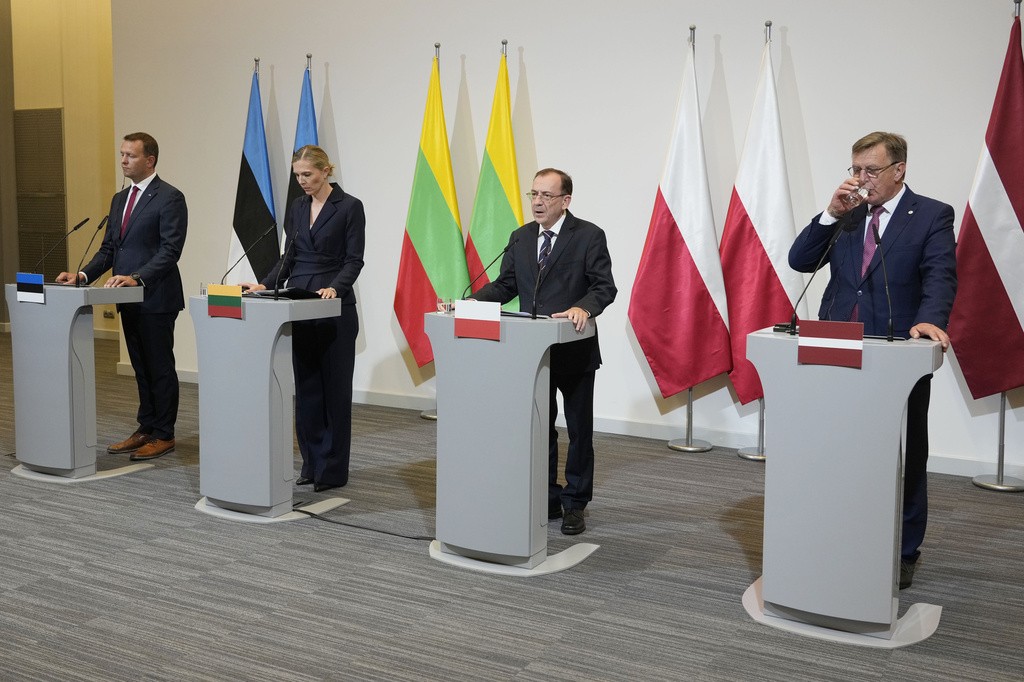The heads of the interior ministries of Poland, Lithuania, Latvia and Estonia will close their borders with Belarus unless the country orders the immediate withdrawal of Wagner Group mercenaries and the dispersal of illegal immigrants from border zones.
A joint statement was made after the ministers’ meeting in Warsaw led by the head of the Polish Ministry of the Interior, Mariusz Kamiński.
“We demanded the immediate departure from Belarusian territory of the Wagner Group and the departure of illegal migrants from the border zone,” said Kamiński.
The Polish interior minister added that the recent spectacular elimination of the Wagner Group leadership does not change the actual situation in Belarus. “There are thousands of deeply demoralized individuals, accused of war crimes, some of them criminals who were released from Russian prisons in exchange for participating in the war in Ukraine. This is a large group capable of doing anything,” he said.
Kamiński said that Lithuania, Latvia, Estonia and Poland are ready for cooperation and warned that “if a critical incident occurs on any of the borders,” all border crossings that are currently open will be immediately closed, for both individuals and goods.
Kamiński announced that a special working group has been established to monitor and coordinate the situation at the borders. The mechanisms developed also concern borders with Russia.
The governments of Poland, Lithuania, Latvia and Estonia also remain in contact with the Belarusian opposition so that in the event of a border closure, people wanting to escape from President Lukashenko’s regime can find refuge in these countries.
The closure of the borders is also being considered if Wagner mercenaries continue to be stationed in Belarus.
The Polish Border Guard warns that the presence of Wagner mercenaries will further complicate the situation on the Polish-Belarusian border. Spokesperson Lieutenant Anna Michalska indicated that Alexander Lukashenko’s regime has no intention of giving up its lucrative practice of aiding illegal border crossings into Poland.
“The pressure continues, as Lukashenko’s regime does not want to give this up, not just for political reasons but also financial ones,” she explained.
The number of attempts at illegal border crossings has increased this year. In 2022, there were 15,700 recorded attempts, while in the last seven months alone, there have been 18,000 cases.






